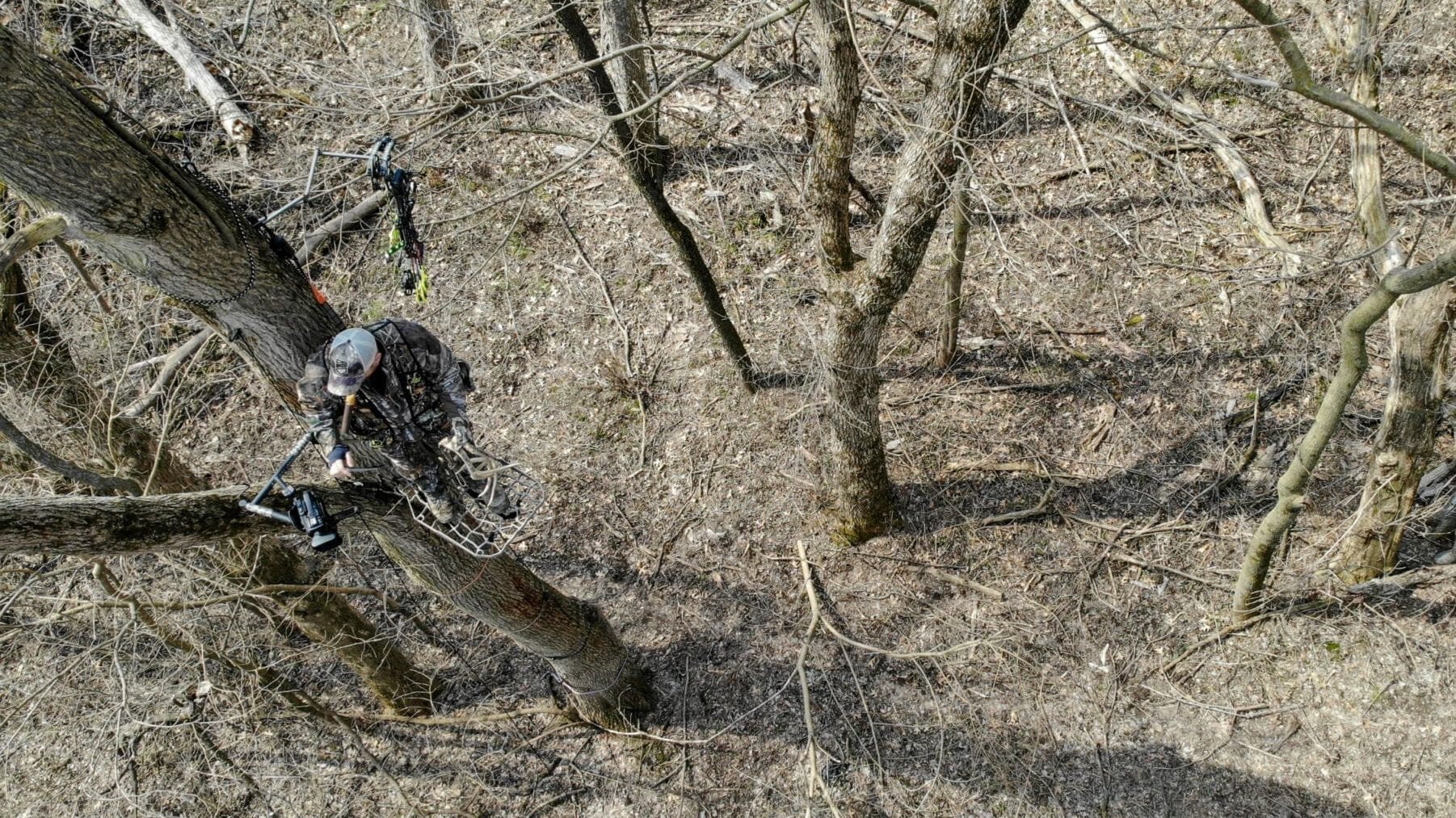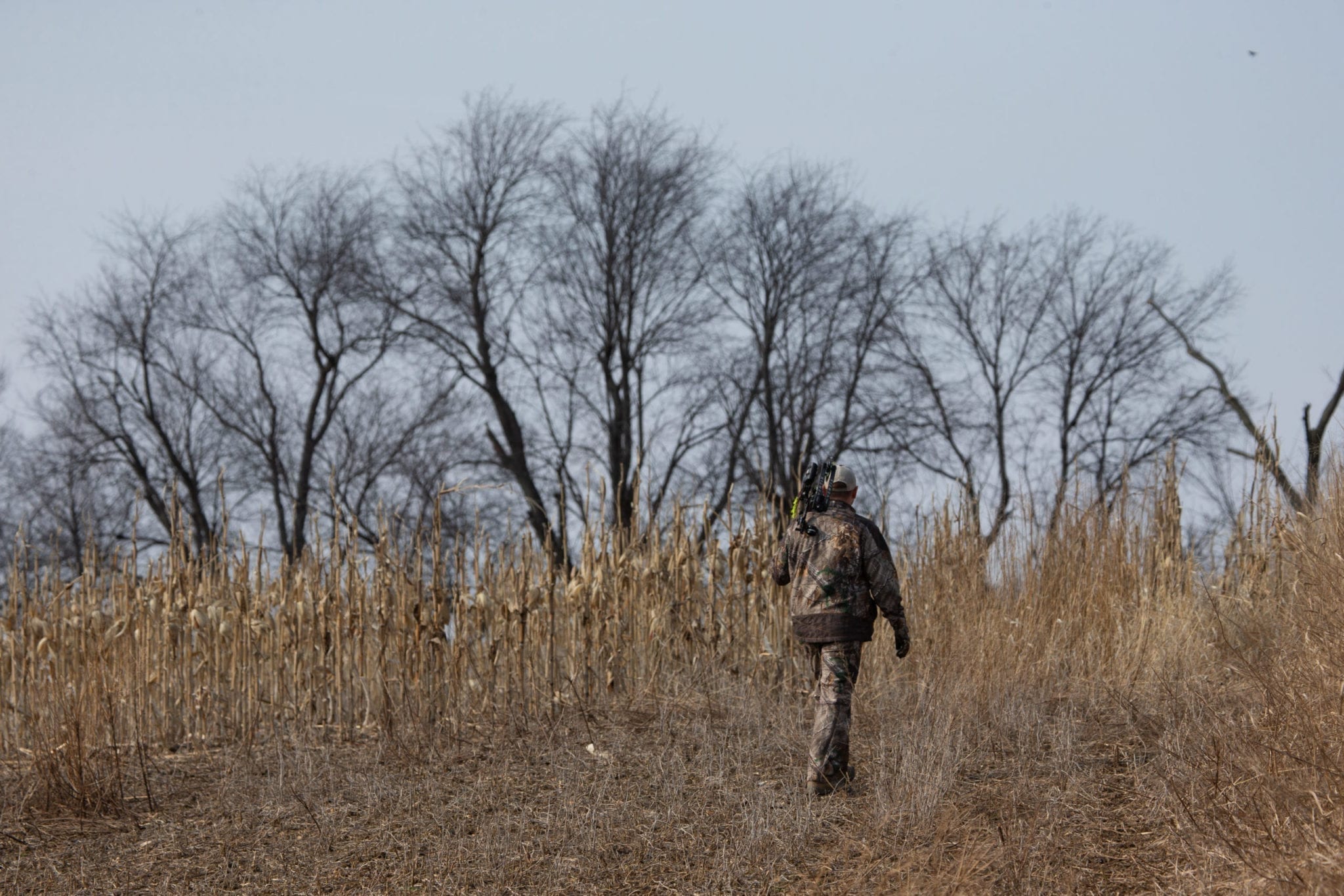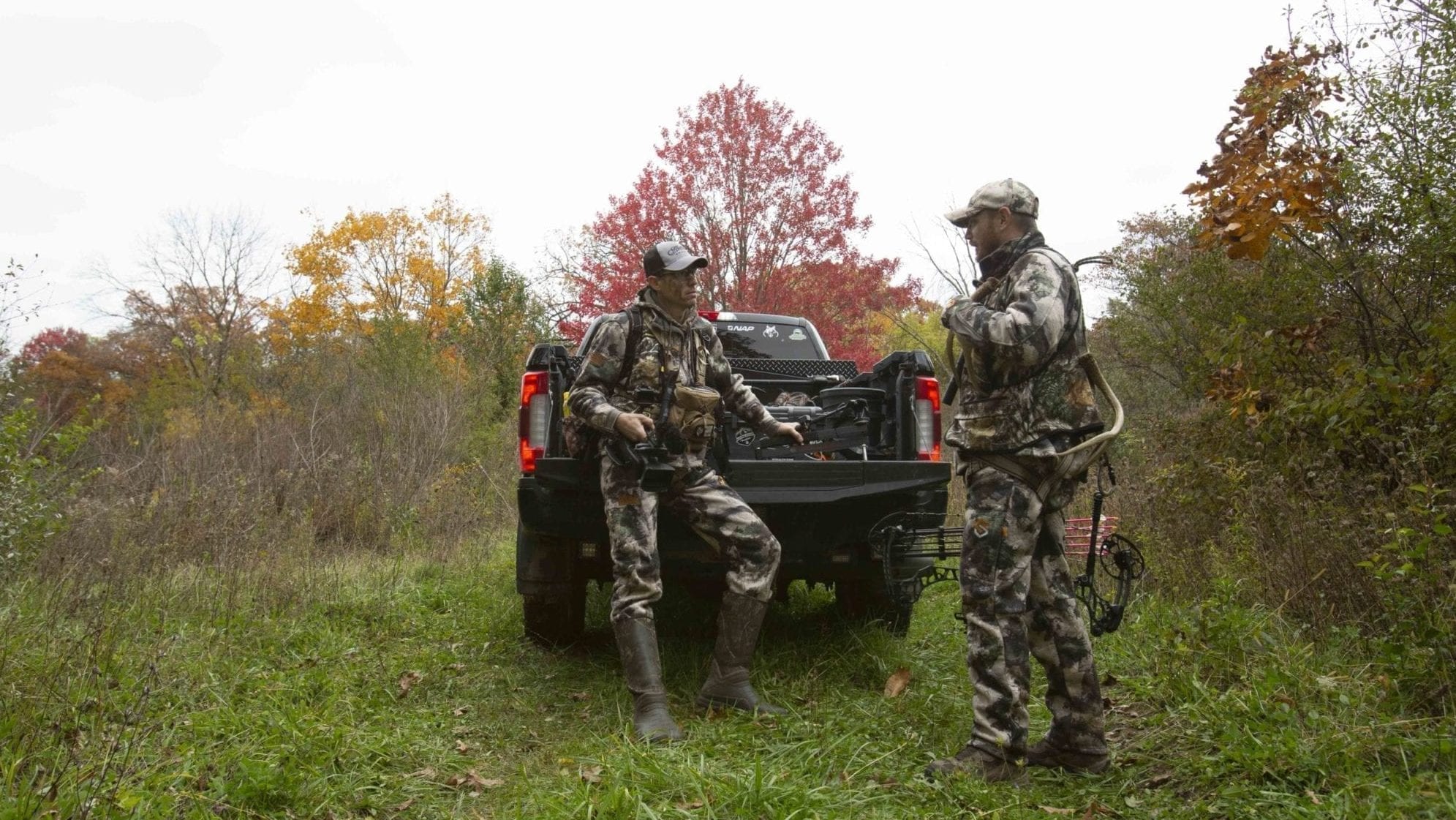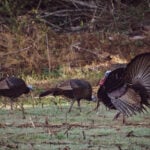We’ve all been there. You go to bed the night before a hunt. The next thing you know, you’ve arrived at your hunting spot in the morning. You have a vague recollection of the alarm going off, and the drive in was non existent in your mind.
Scary, huh?
Putting long hours in the stand, not getting enough sleep, stresses from trying to keep up with work and the family, not seeing the deer movement you expected – these are all drains on not only your enthusiasm, but also your mental and physical condition.
It’s paramount to stay on top of your game, mentally and physically, as you transition through your hunts throughout the year. This means knowing how to battle hunter fatigue as you progress. In the following, I’ll share some signs of hunter fatigue and some suggestions to help you hunt strong from start to finish with every hunt.
You can do a simple internet search and find more examples of fatigue and the associated symptoms than you care to read about. I will however focus on a few that have personally impacted me during grueling hunts or drawn out seasons. Here’s a look at how to handle hunter fatigue.

Long, lonely days in the field can take a toll on your mind and body. Are you prepared to handle hunter fatigue?
Tired and Sore Muscles
Who’s not been here? Sore legs that shoot sharp pains at each minor movement. How about just not having any pep in your step? You literally have one speed and it’s certainly not fast. In some extreme cases I’ve just had to keep telling myself to put one foot in front of the other. This is probably one of the most obvious signs of fatigue that you will notice. It can be caused from many things during a hunt. Hanging stands last minute, flexing the muscles used ascending the tree in your climber, long hikes into the backcountry, and of course the most menacing and tenacious task of all, dragging that trophy out of the woods.
For tired and sore muscles, truthfully our best defense should start well before the season, or even something you work on year-round. A good exercise program will help condition your body and ward off that soreness.
What’s the best way to battle tired and sore muscles? Keep these three things in mind – Rest, Protein, and Stretching.
Rest can be hard to come by during the hunting season. You have to make an extra effort to see it happen. Don’t stay up late swapping stories, playing cards, and drinking beer. Plan to go to bed early during hunting season.
When you roll out of bed each morning, take some time to get some blood flowing and stretch. I’d recommend not only stretching the sore and tired muscles but try and get through a full body stretch. Not only will this work some of the ache out of any stressed muscles, but will help prevent any injuries moving forward. I’d also suggest to stretch a few times periodically through the day. This will help with blood flow and circulation helping to get nutrients to those muscles. While you’re at it, don’t go to bed hungry. Make sure you are getting plenty of protein in your diet to help repair those muscles you’ve been taxing relentlessly through an active day at work or on the hunt.

Long hikes through tough terrain can take more out of you than you realize. You’ve got to take the proper steps to stay on your game.
Trouble Concentrating
You just can’t seem to keep your mind in the game. Trying to focus on outwitting or outwaiting any animal becomes much more difficult when you’re struggling with concentration of the task at hand. Having some dizziness or a headache? These are all signs of fatigue. I’ll be the first to admit that I am not a doctor, so if the conditions are severe or persistent, please consider seeing yours. However, if they come on after many long days in the field, I’ll give you a few tips that may help.
If you have been pounding the bear claws and honey buns because you haven’t taken time for a proper meal, or you’re on the road, it could be a case of hypoglycemia. While this condition is more prevalent in those with diabetes it can still happen to anyone under the right conditions. Hypoglycemia occurs when your body incurs a sharp drop in blood sugar. If I have a very sugary breakfast, about an hour or so later I’ll begin sweating, shaking, and not able to focus on anything. Avoid this by eating a balanced breakfast (or any meal) with minimal added sugars.
Another potential cause of this type of fatigue is dehydration. Just because it’s cold doesn’t mean you don’t have to drink water and get your electrolytes. I used to literally drive myself to dehydration because I didn’t want to have to pee in the stand. While I thought this would improve my odds for a successful hunt I was doing more damage than good. Avoid dehydration by taking water with you to the stand or other sports drink (just watch those sugars). Also, make sure you get plenty to drink in the evening after you come out of the woods.

Don’t overlook nutrition and hydration as keys to keeping you energized and focused during this 4th quarter of hunting season.
Irritability and Low Motivation
Be really careful with this one. These fatigue indicators not only effect you, but could be detrimental to camp life or when you get back to your family after an all day sit in the woods. I hate to say it, but wearing yourself down too far can make life around you pretty miserable for others. Not to mention, if you are just going through the motions, odds of motivating yourself late in the season when it’s cold and dreary out aren’t really good.
What can you do to keep yourself out there and pseudo pleasant to be around? I don’t know that there is a scientific approach to correcting this issue. If you’re tired, you’re tired. Get some sleep if at all possible. Maybe you just have to take one morning off and sleep in, or consider coming out of the woods at midday to get a nap in between hunts. One of my favorite days in the fall is hunting in the morning, coming out of the woods for something warm to eat, taking a snooze, and then waking up focused for the afternoon. This also puts me in a much better mood in the evening when I’m spending quality time with my wife and kids.

Sometimes it is best to head straight home for a quick nap instead of hanging around the woods.
Reduced Immune System
I’ve come to respect my immune system, and the ill effect of wearing it down. I had to learn the hard way (more than once I might add) that going and going and going will eventually catch up to you. It can also put you down hard, too. So just to be clear, your immune system is your body’s defense to various sicknesses and ailments. In general, the healthier your mind and body, the healthier the immune system and less likely you are to get sick. You know as well as I do, being sick in the woods is horrible. That is, if you even make it to the woods.
Keeping your immune system in top shape really takes a culmination of all the things I’ve already hit on. Being in good physical condition leading up to the hunt gets you off on the right foot. Taking some time to stretch and get the blood flowing during the hunt will help deliver nutrients and oxygen to your muscles and organs. Fueling your physical and mental states with proper nutrition will go a long way in charging your immune system, keeping you feeling good and in the woods. Perhaps, even consider a multi-vitamin or at a minimum some vitamin C supplements. Lastly, make sure you are getting enough sleep. Forego any late night deer camp activities or slip off to bed as soon as you get the kiddos tucked in rather than watching an hour or two on the tube. Taking these little steps may just buy you and extra 2 or 3 days in the woods.

Staying healthy and keeping your body in good physical condition during deer season is essential.
How to Handle Hunter Fatigue – Conclusion
In summary, keep your eyes open for signs of fatigue in yourself or other camp mates. Getting careless in the woods because you can’t focus can lead to injury getting to and from, or up and down in the stand. Getting so tired you doze off in the treestand could obviously cause some serious problems as well. We’re going to get fatigued if we hunt as hard as we hope too. Taking some of the steps mentioned above and knowing when enough is enough will keep you on point and safe in the later stages of your season.

 By
By 



